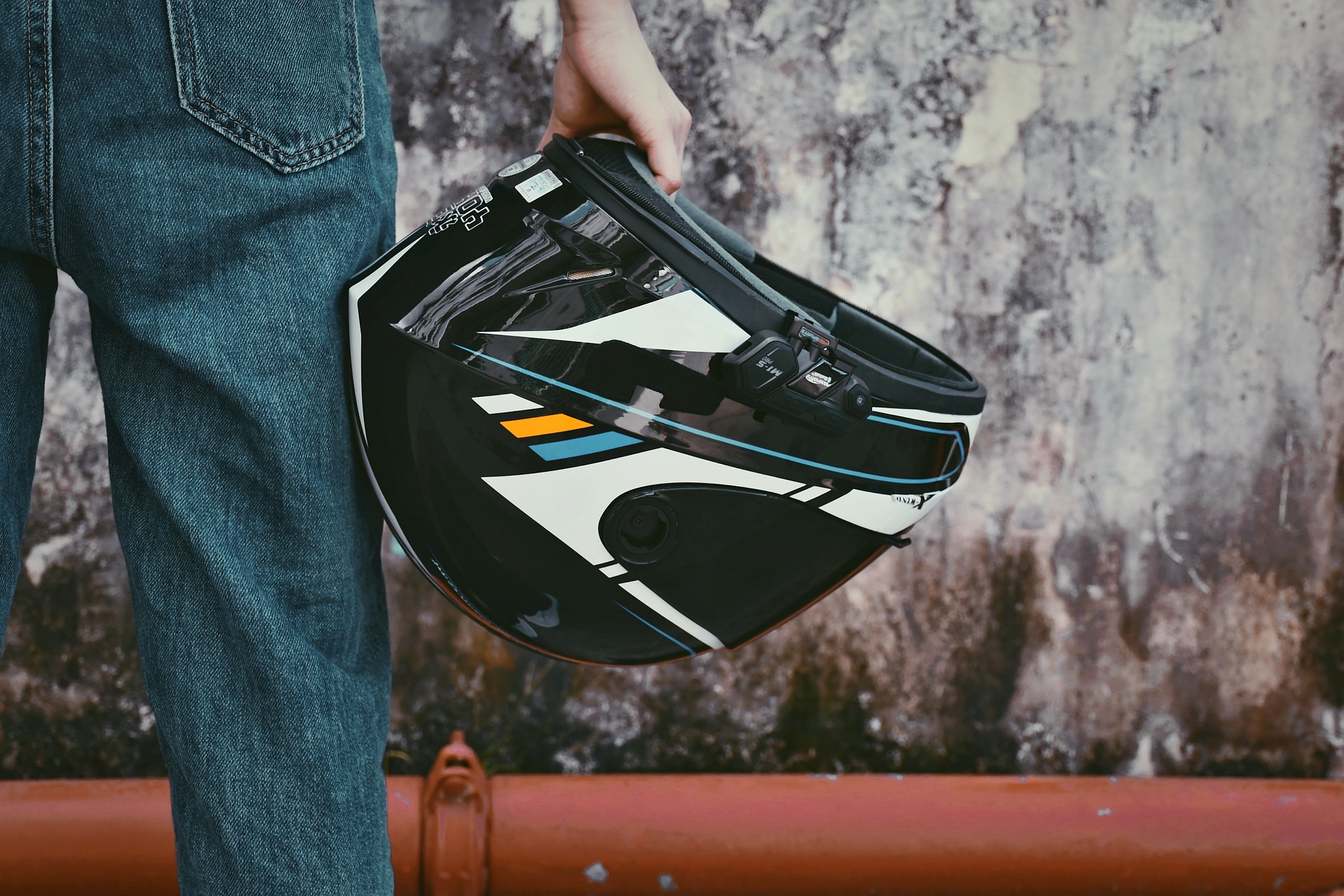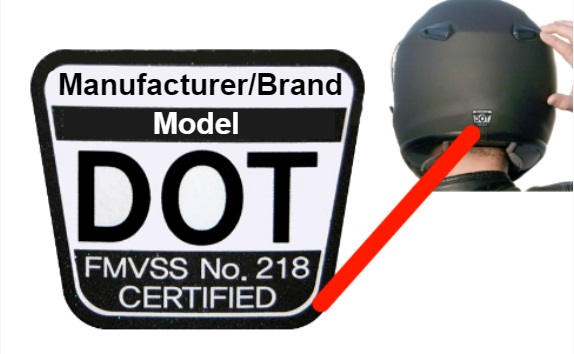
Why is DOT the Standard for Motorcycle Safety?
A DOT approved helmet is one of the most important pieces of safety equipment a rider can wear. These helmets are certified by the Department of Transportation and ensures that it meets the Federal Motor Vehicle Safety Standard.
But what does that mean? Can’t other helmets be just as safe? What if you don’t wear a DOT approved helmet? The Car Crash Captain looks into all of this as we examine this important piece of gear.
Why is DOT the Standard?
Basically put: because that’s what the US government has chosen. Helmets that meet DOT standards undergo impact and retention tests. These will measure how much of an impact the helmet can take without damaging the contents of the helmet, as well as how well the safety straps keep the helmet on the head – a helmet that falls off at the beginning of a crash is of no use.
What does a DOT Helmet Require?
DOT is looking essentially at three things: weight, thickness, and straps.
Helmets that come in at less than one pound are generally going to be unsafe. They just don’t have the bulk that will allow them to absorb an impact. Heavier components will also stand up to road rash better – dragging your head along a road at 50 miles per hour will wear through a cheap helmet really quickly.

Thickness also helps with that road rash, but really what is considered here is the padding and liner. Polystyrene (usually called by the brand name Styrofoam) that is at least ¾ inch thick will soften a blow. Usually, you can’t see this as it’s covered by the liner. The liner is almost entirely comfort so your noggin isn’t pressed right against the foam, but it also helps hold the helmet in place.
Holding it in place, however, is the job of the chin straps. Most straps are going to do the job, the weak point is the rivets that connect straps to the helmet. If they fail, the helmet fails.
Can other Helmets be Safe?
The short answer: yes. But there’s more to the question.
To be legally sold as a helmet approved for street legal operation, the helmet needs to get the DOT stamp of approval. That doesn’t mean, however, a non-DOT helmet won’t protect you.
- Bicycle Helmet – If you’re puttering around on a scooter and you fall and bonk your head, a bicycle helmet might protect you. But you’re putting yourself at a lot of risk with protective gear designed for low speeds.
- ECE Helmet – The European counterpart to DOT is ECE. ECE actually requires more stringent testing (i.e. puncture resistance and vision testing). If you purchased a helmet overseas with the ECE certification, you most likely have a helmet that will also meet DOT standards.
- Snell Helmet – Amateur racer William Snell died from head injuries sustained in a race back in the 1950’s – injuries that would have been prevented had helmet laws existed (and been followed). The Snell Foundation now certifies helmets (for a variety of activities) based on how well they perform. While a Snell certified helmet doesn’t mean it’s better than a non-Snell certified, it does mean that the helmet in question goes above and beyond the bare minimum for standards.
The rules on helmets also vary depending on the state you are riding in. For example, California requires the helmet to cover the entire head – that means beanie style, or half helmet, won’t fly there.
Contact Herbert Law Group if You’ve been Injured
Novelty helmets are out there and look like a DOT certified helmet, but don’t meet the requirements. Fake DOT tags can be affixed and unscrupulous dealers may sell unsafe helmets – so do you due diligence and know what to look for in a safe helmet.
If you have been injured in a motorcycle wreck, then Herbert Law Group is here for you. From our offices in Richardson, Texas, we’ll help you recover the compensation you deserve so you can fully heal.
Let’s talk about what happened. Call our office at 214-414-3808, or fill out the contact form on our site and we’ll reach out to you.